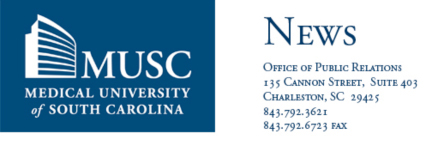
April 26, 2010
CHARLESTON -- Investigational treatment Immune Globulin Intravenous (IGIV), which utilizes naturally occurring antibodies in human blood, has preserved the thinking abilities of a small group of mild-to-moderate Alzheimerís patients.
The brain of a typical Alzheimerís disease (AD) patient shrinks three to four times faster than a healthy older adult due to accelerated brain cell death. Shrinkage of brain tissue causes the fluid-filled ventricles at the brainís center to enlarge at a faster rate than normal. The unprecedented reductions in these measures after IGIV was administered in the Phase 2 study may indicate that IGIV exerts a disease-modifying effect that the current generation of AD treatments does not.
"Itís very encouraging news and if the results are confirmed, this will be a great victory against Alzheimer's disease," said Jacobo Mintzer, M.D., principal investigator at the MUSC location of the study. "We are proud to be one of the leading centers working on this project."
The next step Phase 3 study of IGIV is now underway throughout North America. The Phase 3 study is an 18-month, randomized, double-blind, placebo-controlled, two dose arm of parallel groups in 360 subjects of both genders, aged 50-89 years old with mild-to-moderate AD.
About MUSC
Founded in 1824 in Charleston, The Medical University of South Carolina is the oldest medical school in the South. Today, MUSC continues the tradition of excellence in education, research, and patient care. MUSC educates and trains more than 3,000 students and residents, and has nearly 11,000 employees, including 1,500 faculty members. As the largest non-federal employer in Charleston, the university and its affiliates have collective annual budgets in excess of $1.7 billion. MUSC operates a 750-bed medical center, which includes a nationally recognized Children's Hospital, the Ashley River Tower (cardiovascular, digestive disease, and surgical oncology), and a leading Institute of Psychiatry. For more information on academic information or clinical services, visit www.musc.edu or www.muschealth.com.
#####